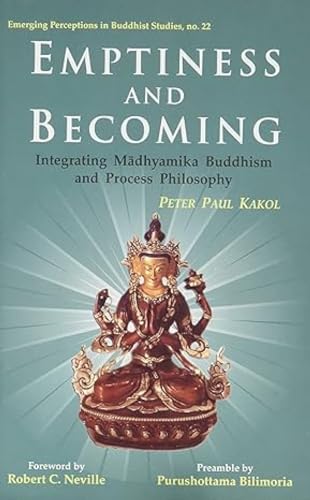Emptiness and Becoming: Integrating Madhyamika Buddhism and Process Philosophy
Emptiness and Becoming: Integrating Madhyamika Buddhism and Process Philosophy is backordered and will ship as soon as it is back in stock.
Couldn't load pickup availability
Genuine Products Guarantee
Genuine Products Guarantee
We guarantee 100% genuine products, and if proven otherwise, we will compensate you with 10 times the product's cost.
Delivery and Shipping
Delivery and Shipping
Products are generally ready for dispatch within 1 day and typically reach you in 3 to 5 days.
Book Detail
- Author: Peter Kakol
- Brand: D.K. Print World Ltd
- Edition: 2009
- Binding: Hardcover
- Number of Pages: 447
- Release Date: 01-12-2009
- EAN: 9788124605196
- Package Dimensions: 8.6 x 5.9 x 1.3 inches
- Languages: English
Description:
The book presents a detailed comparison of process philosophy and Madhyamika Buddhism, analysing the similarities and differences between the two. It attempts a creative integration between the two and introduces a new philosophy, Process Buddhism. Process thought underscores the view that reality is a cumulative process of perspectival and experiential events. Peter Kakol’s work, in a remarkable foray into this area of philosophy, shows that the Madhyamika teaching, which essentially stresses the “emptiness of emptiness,” and process theory of worldviews are not incompatible with each other but are rather complementary aspects of the same theory. In this meticulous work where the analysis involves careful exposition of both sides, Kakol notes that the fundamental compatibility between them is that both views become contradictory if seen as independent and so must be constantly transcended in a process of gradual purification and de-reification (or nominalisation). Kakol reveals an ability to situate process philosophy and Madhyamika Buddhism in the context of larger movements, both in their times of origin and now. He examines the views of not just Buddhist scholars and process philosophers but a range of social and political thought too. The work will fascinate scholars and students of Process Philosophy and Madhyamika Buddhism.







